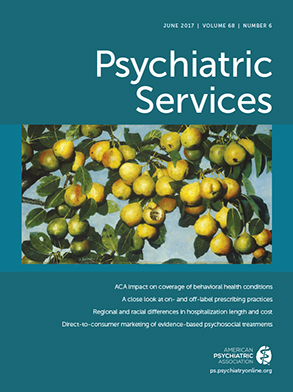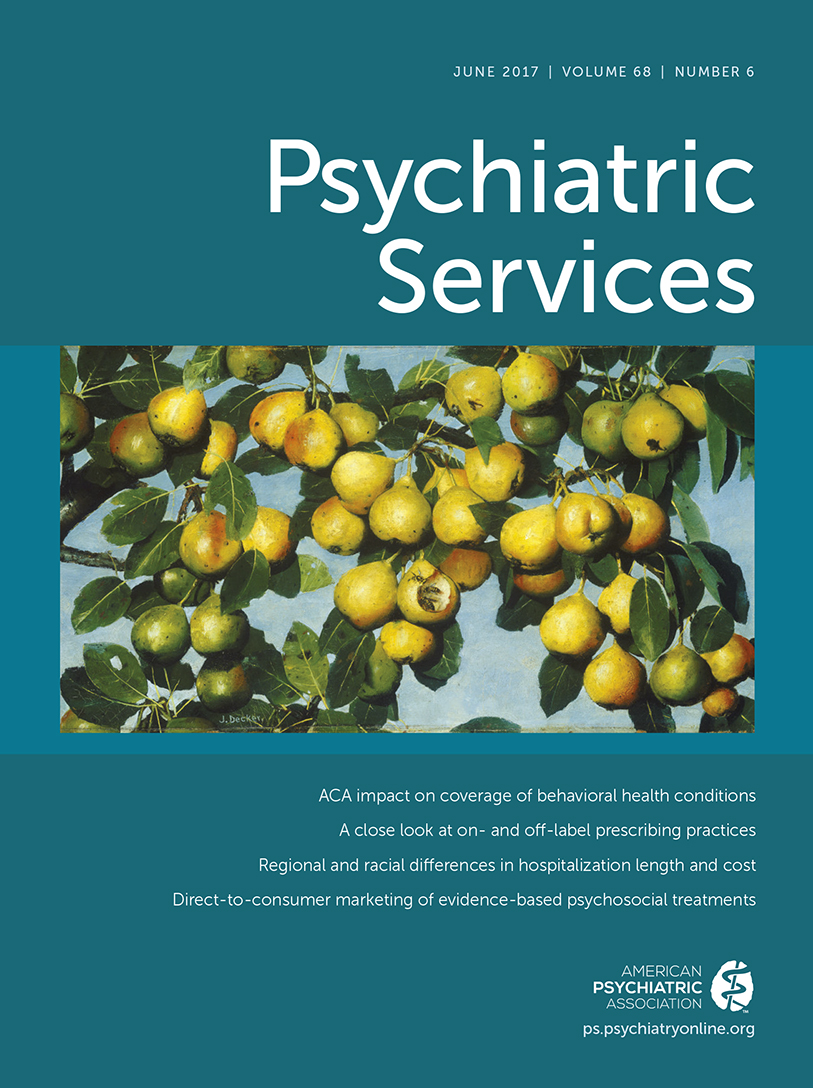“Repeal and replace”—that is the refrain of the moment with respect to the Affordable Care Act (ACA). As of this writing, the future of health care reform is unclear. By the time this piece is published, the die may be cast. The article and supplementary letter to the editor by Brendan Saloner, Ph.D., and his colleagues in this issue of Psychiatric Services give us a glimpse of what may be lost if the ACA, or “Obamacare,” is not replaced with something better for people seeking behavioral health services. It also includes a cautionary tale about limitations of improved insurance coverage.
Using data from the National Survey on Drug Use and Health (NSDUH), Dr. Saloner and his colleagues tracked levels of health insurance coverage and service use for individuals with a likely diagnosis of a behavioral health condition after implementation of the ACA. They found that coverage has increased significantly for those with and without behavioral health conditions, particularly for those who live at ≤200% of the federal poverty level. Even with increases in insurance coverage, however, there has been no increase in utilization of services for treating substance-related disorders and little or no increase in all other behavioral health services.
Previous studies of improvements in health insurance coverage, such as parity of behavioral health care with general medical care, also have shown improvements in financial protection but little or no increase in utilization attributable to the changes in policy. The treatment of addictions had been an exception, however, with respect to increases in utilization, such as in the studies of health insurance parity for federal employees. The lack of any increase in addiction treatment services found by Saloner and colleagues is troubling, particularly during an epidemic in addiction to opioids. NSDUH survey results show that need continues to far outstrip use, so lack of need is not the issue. Something else is standing in the way of expected demand responses to increased insurance availability. It could be a lack of supply of acceptable providers of care, perhaps combined with a hesitation to seek care because of attitudes or other discriminatory policies and practices. Perhaps there are other insurance design barriers. Whatever explains the findings, improving access to addiction treatments is critically important to address the current epidemic. And responding to the public health problem of opioid addiction is important to continued public support for behavioral health services more broadly.
It is heartening to know that despite stubborn opposition to Obamacare, some of those who wish to repeal and replace the ACA appreciate some of the benefits associated with higher levels of health insurance coverage in the population—and they recognize the merits of providing coverage even to individuals with preexisting conditions. Let us hope that continues to be true. With the initial failure of the bill to repeal and replace the ACA, however, there is some concern that a new bill might push to abandon the parity laws or lessen support for continued coverage of behavioral health services, particularly for the treatment of addiction, which was once an excluded condition in many insurance policies.
We should all be concerned about rolling back many of the provisions of the ACA that would undo the progress on insurance coverage reported by Dr. Saloner and his associates. Whatever policy means are chosen for the replacement, the policy ends must be clear and championed. Health care reform should continue to increase the number and proportion of individuals covered by health insurance. The insurance policies must be affordable, particularly for those of very limited means. Restricting further access to Medicaid threatens the ability of poorer citizens to obtain health insurance. Limiting government and employer subsidies will mean that fewer individuals will be covered. Failing to find a way to include everyone in the coverage pool will result in continued premium and cost-sharing increases. Increases in out-of-pocket costs double the burden for individuals with limited means, even if they get their premiums subsidized. And it is not acceptable to reject the status of behavioral health services as essential health benefits, covered on a par with general medical services. We have made considerable progress as a field; we cannot give up on the heart of the reforms. There are so many benefits to all of us from adequate coverage at an affordable cost. Surely that is a policy agenda that we can all support.

